Iran, Azerbaijan oppose foreign interference in regional affairs
Visiting neighboring Azerbaijan, Iranian Foreign Minister Hossein Amir-Abdollahian say countries in the region are not interested in the presence of outsiders, and that they are capable of resolving problems on the back of collective cooperation.
Amir-Abdollahian is in Baku at the head of a delegation to exchange views with high-ranking officials of neighboring Azerbaijan on regional developments and ways to expand bilateral relations. He made the remarks in a meeting with Azeri President Ilham Aliyev on Wednesday.
He pointed to the recent session in Moscow of the 3+3 format of cooperation between the South Caucasus countries, on the one side, and Iran, Russia, and Turkey, on the other, saying such arrangements will contribute to the consolidation of peace and stability in the region.
The first meeting in the 3+3 regional cooperation format was held in the Russian capital on December 10. Azerbaijan, Russia, Turkey, Armenia and Iran took part in the event, but Georgia said it would not attend.
Amir-Abdollahian expressed hope that Georgia would also join the process and said, “Such regional formats convey the message that regional states are able to resolve the problems through cooperation with one another.”
Regional states, he added, “are not interested in the interference of foreign players and our common enemies will have no place in this region.”
He added that high-ranking Iranian and Azeri officials are resolute on the expansion of mutual relations given the unique commonalities existing between the two countries.
“A new chapter has opened in relations between the two countries, which will bring positive results for both countries. We are ready to finalize all the previous projects and reach new agreements,” the top Iranian diplomat said.
The Azerbaijan’s president, for his part, stressed the importance of relations between the two neighboring countries and the finalization of joint projects, voicing his country’s keenness to expand mutual relations in political, economic and cultural fields.
Aliyev said issues in the region should be resolved by its own countries, adding that Baku opposes foreign interference in regional affairs and believes that regional links would serve the interests of all regional states.
Earlier this year, tensions soared between Tehran and Baku, which share a 700-kilometer border, after Azerbaijan seized a border strip with Iran that had been under Armenia’s control and created problems for Iranian truck transportation.
Iran has also raised concerns about border security amid Azerbaijan’s close military cooperation with the Israeli regime.
However, in a phone call with his Azerbaijani counterpart Jeyhun Bayramov in October, the Iranian foreign minister said Azerbaijan’s release of two detained Iranian truck drivers constitutes a constructive move to clear misunderstandings and expressed Tehran’s keenness to improve and broaden relations with Baku.
Iran, Azerbaijan FMs discuss enhanced cooperation
In a separate meeting on Wednesday, the Iranian and Azerbaijani foreign ministers discussed ways to promote bilateral cooperation in different fields.
Amir-Abdollahian said a meeting between Iranian President Ebrahim Raeisi and his Azeri counterpart, which was held on the sidelines of the 15th Summit of the Economic Cooperation Organization (ECO) in Turkmenistan’s capital of Ashgabat late in November, indicated the two countries’ firm determination to improve relations.
Pointing to the significance of bilateral cooperation in the transit and energy sectors, he urged the two countries to boost interactions in other economic fields, particularly between the private sectors.
The Iranian foreign minister expressed the country’s readiness to export technical and engineering services to Baku and help the process of reconstructing and developing the territories retaken by Azerbaijan in a war with the neighboring Armenia.
Azerbaijan and Armenia fought a six-week war last year in which Azeri troops drove Armenian forces out of swathes of territory they had long controlled in and around the Nagorno-Karabakh enclave.
Although the fighting in Nagorno-Karabakh, which is internationally recognized as part of Azerbaijan, ended in a Russian-brokered ceasefire, clashes on the border have persisted at irregular intervals this year, occasionally causing fatalities.
Meanwhile, Amir-Abdollahian invited his Azeri counterpart to make a visit to Tehran. The invitation was welcomed by Bayramov, who said he would travel to Iran in the near future.
Bayramov said the meeting between the Iranian and Azerbaijani presidents was very important and their agreements would draw up a new roadmap in mutual relations.
He pointed to important and strategic Tehran-Baku cooperation in the transit and energy fields and added that the two sides enjoy useful and growing ties in international bodies such as the ECO.
Transfer of Iran’s gas to Azerbaijan will be operational soon: Amir-Abdollahian
In a meeting between Amir-Abdollahian and Speaker of Azerbaijan’s National Assembly Sahiba Gafarova, the two sides exchanged views on the expansion of bilateral cooperation in different areas, particularly in the parliamentary fields.
The Iranian foreign minister said the transfer of Iran’s gas to Azerbaijan would become operational soon within the framework of a tripartite agreement on the swap of Turkmenistan’s gas to Azerbaijan through Iran.
He added that Tehran and Baku are ready to further promote cooperation as soon as possible in the fields of trade, economy and transportation, highlighting the significance of support of the two countries’parliaments in this regard.
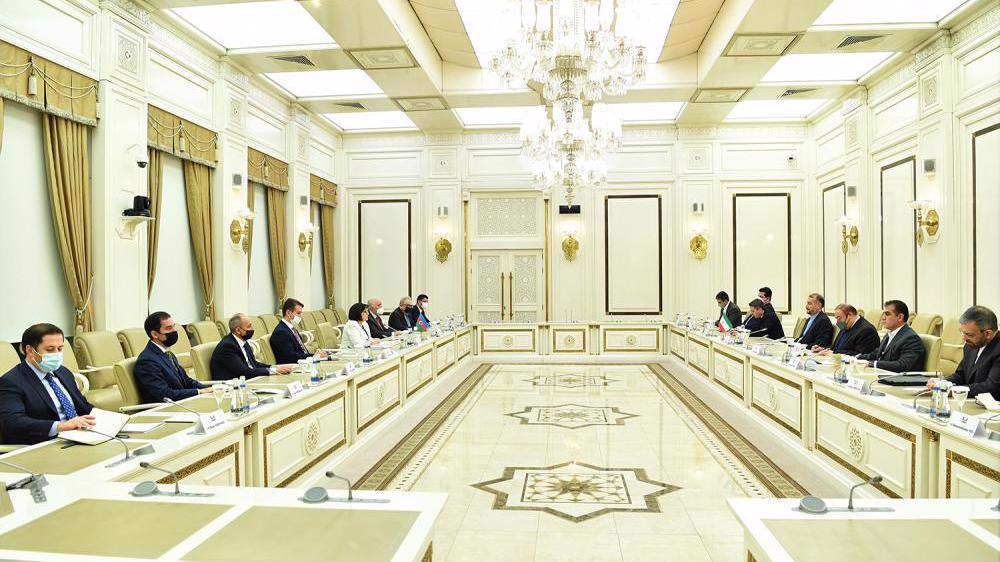
Gafarova, for her part, pointed to deep-rooted relations and historic, cultural and territorial commonalities between two countries and hailed Iran’s firm support for Azerbaijan during the Nagorno-Karabakh war.
She said the two countries’ parliaments are ready to help develop mutual ties and reiterated the need to strengthen cooperation between parliamentary friendship groups.
She also invited Iranian Parliament Speaker Mohammad Baqer Qalibaf to travel to Baku as soon as possible.
VIDEO | Paris march in support of Palestine women
VIDEO | ICC issues arrest warrants for Israeli prime minister, ousted regime war minister
120 Palestinians perish as Israeli war machine keeps ravaging Gaza
VIDEO | Struggles of Palestinian women amidst war, displacement
VIDEO | Hezbollah rains attack drones down on elite Israeli brigade
VIDEO | US biased mediation fails
Leader: All captains of criminal, Zionist, terrorist gang must be prosecuted
Iran further raises its oil prices for Chinese buyers: Report


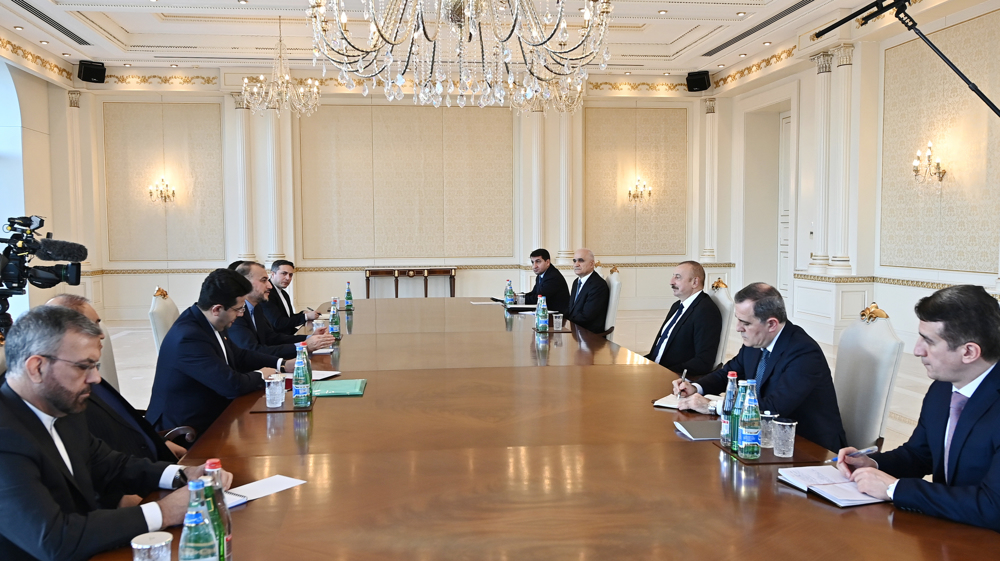
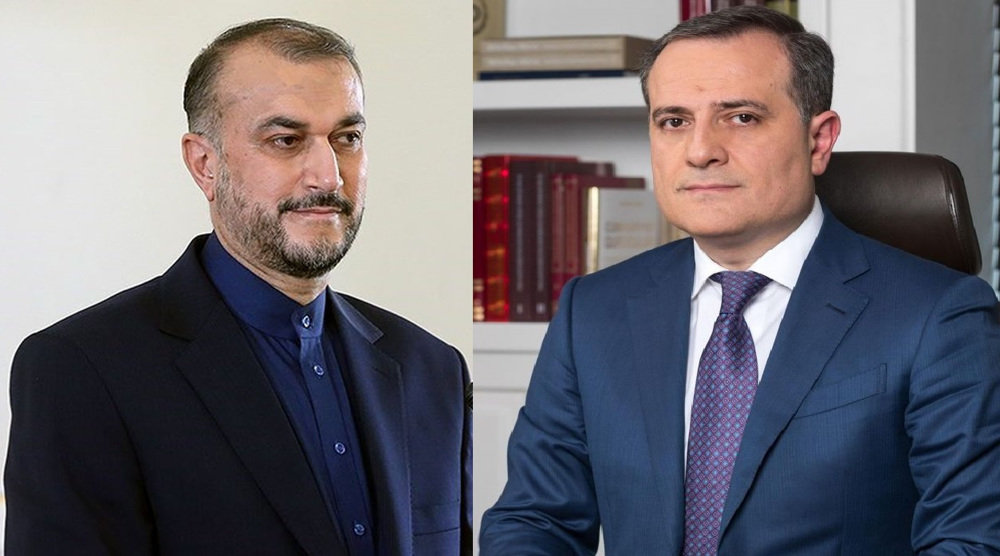
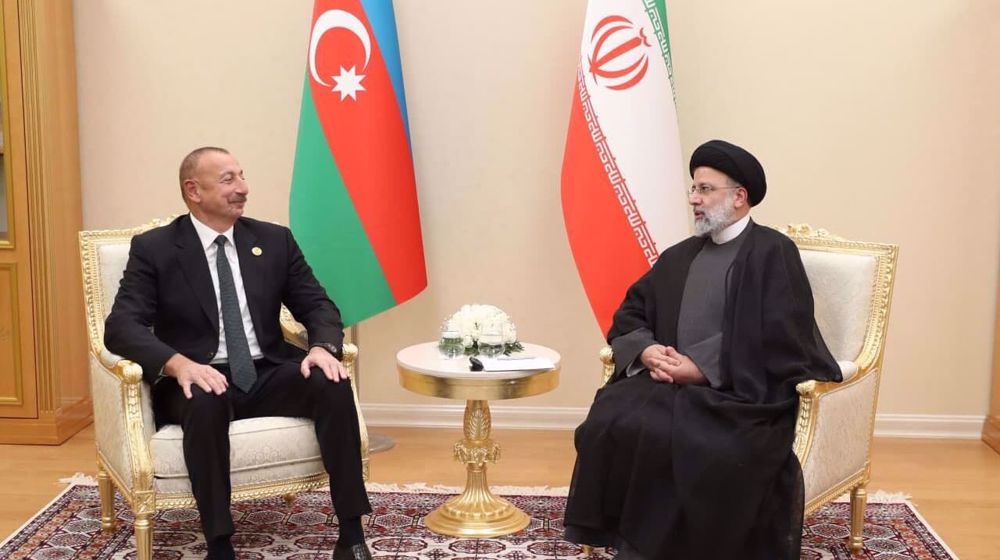
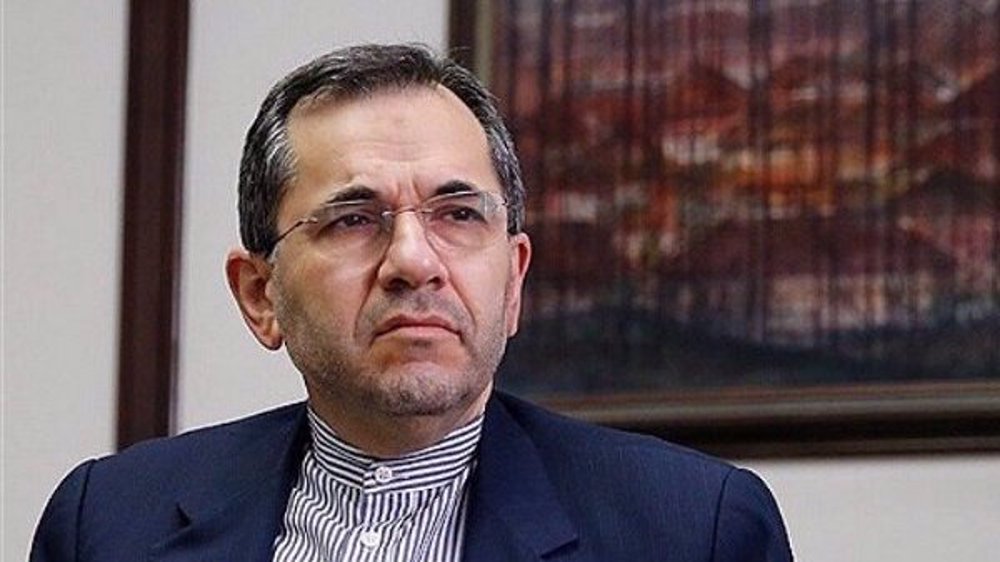
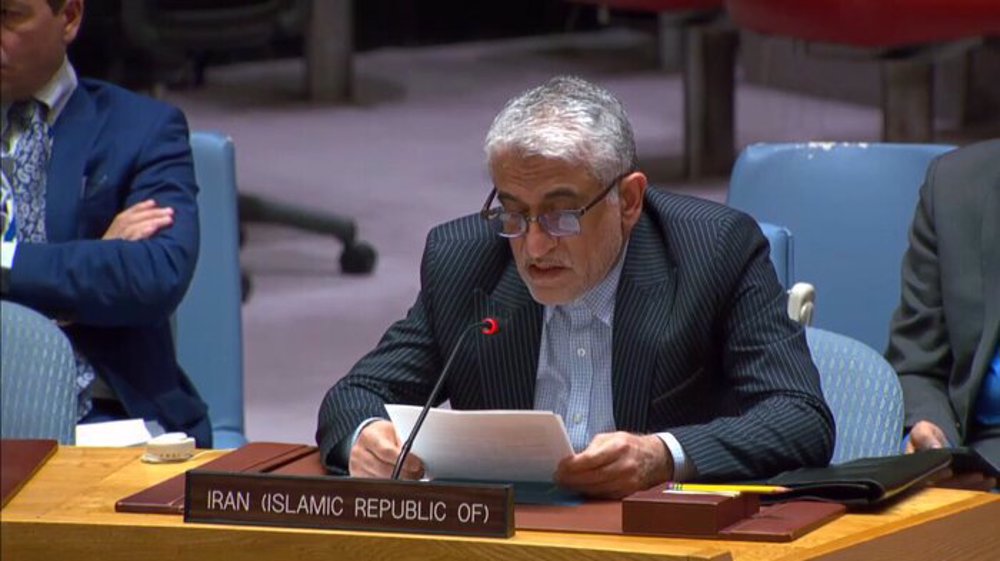
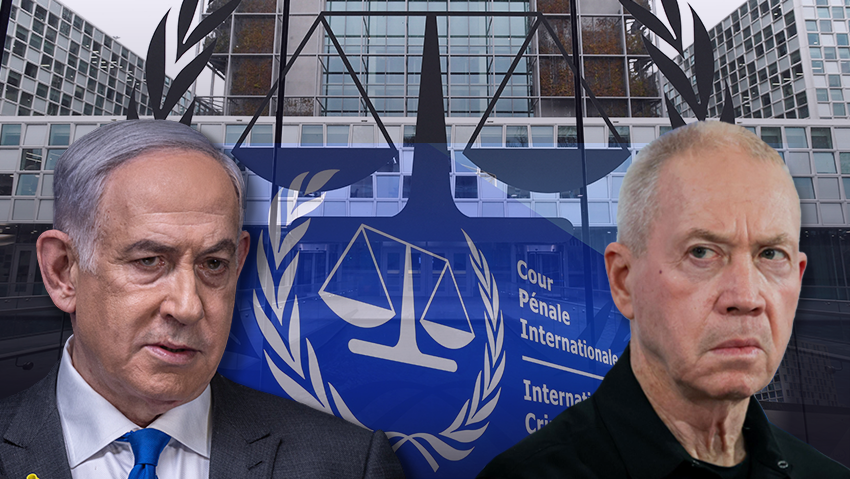




 This makes it easy to access the Press TV website
This makes it easy to access the Press TV website